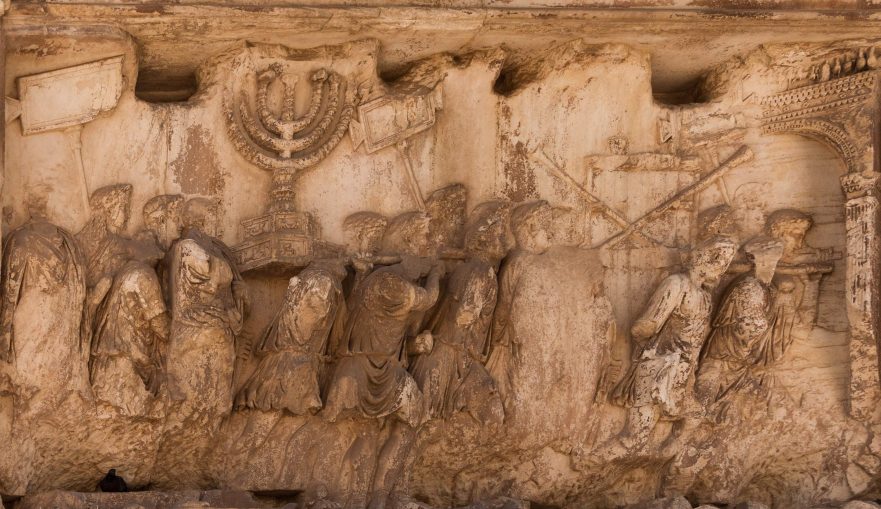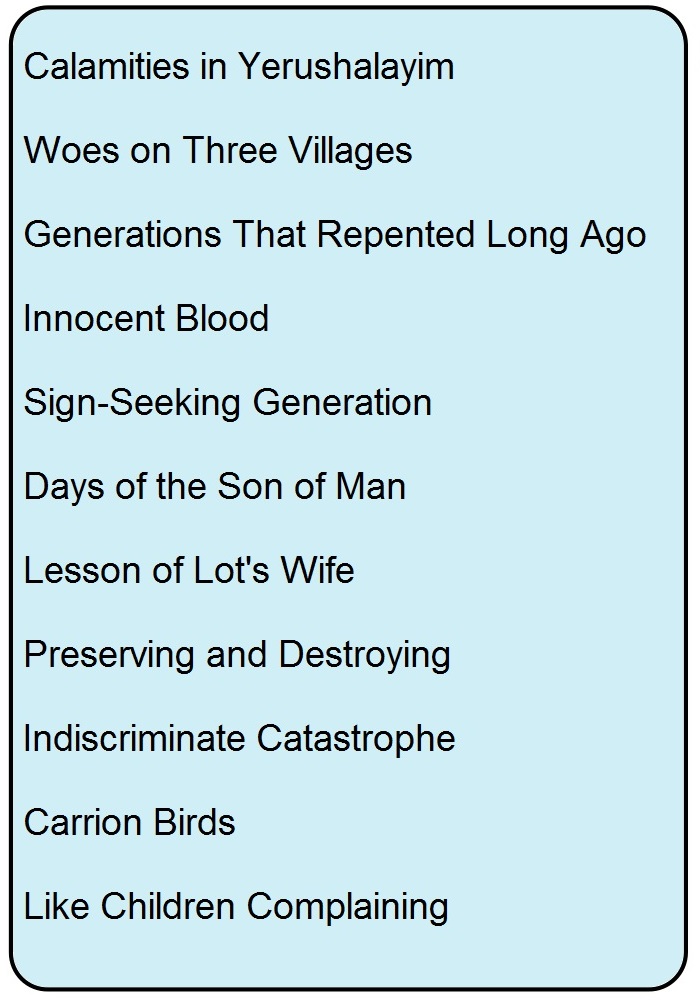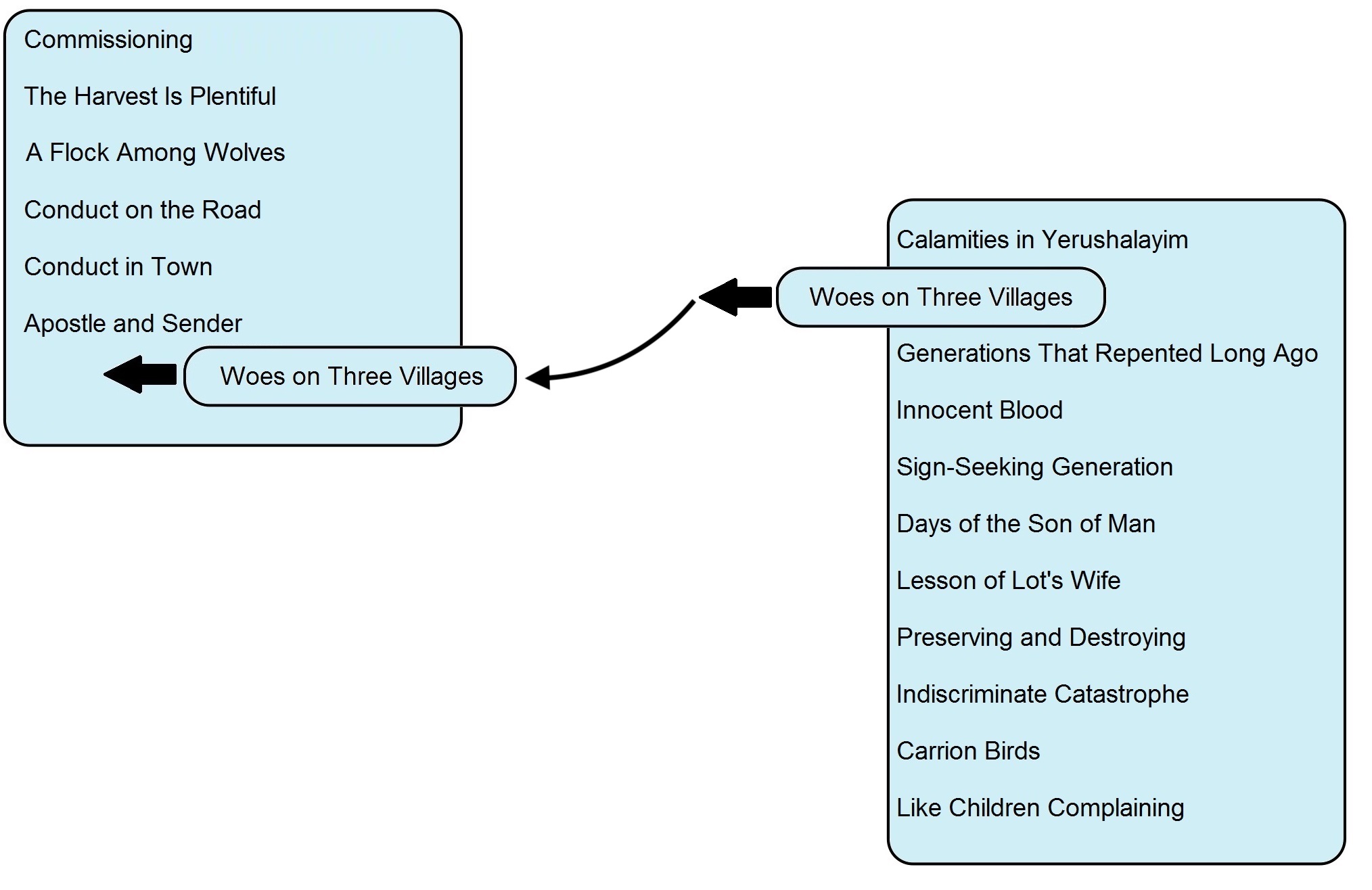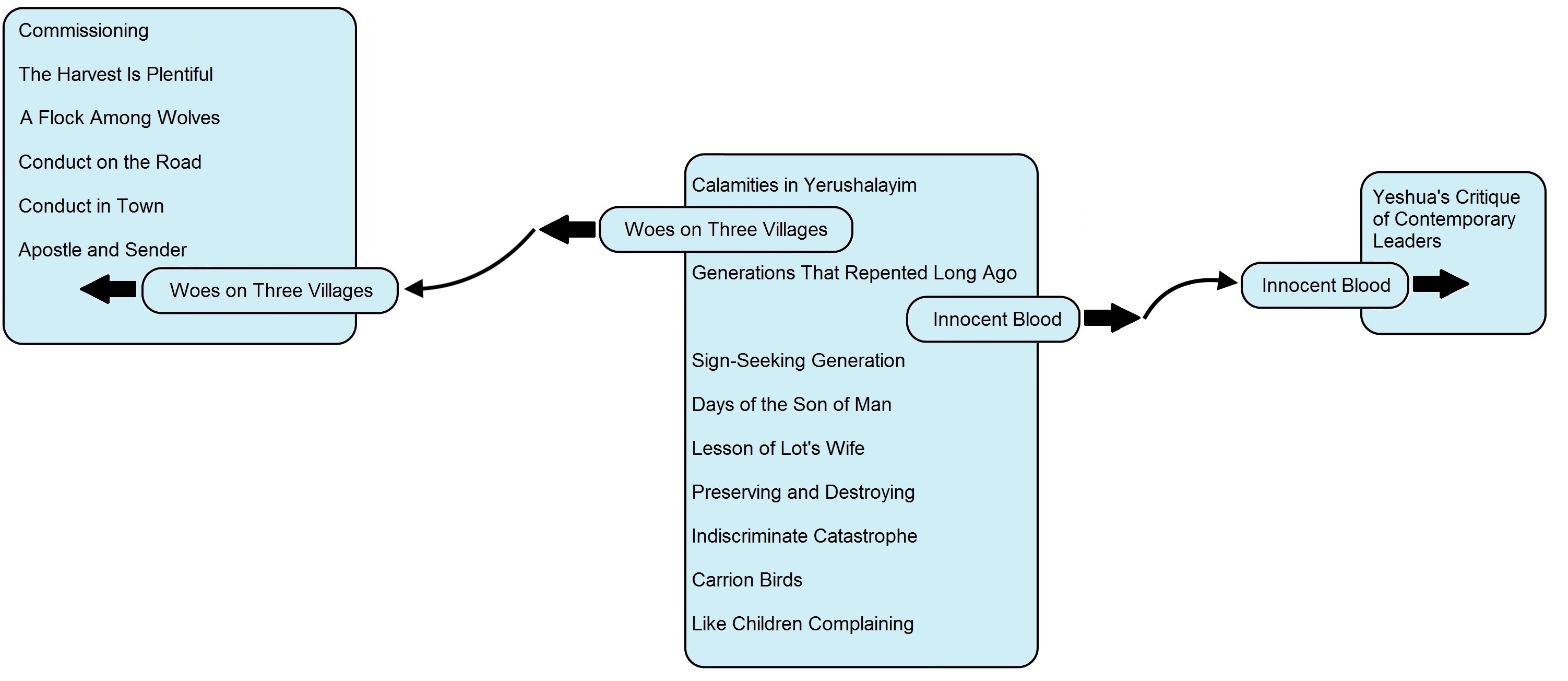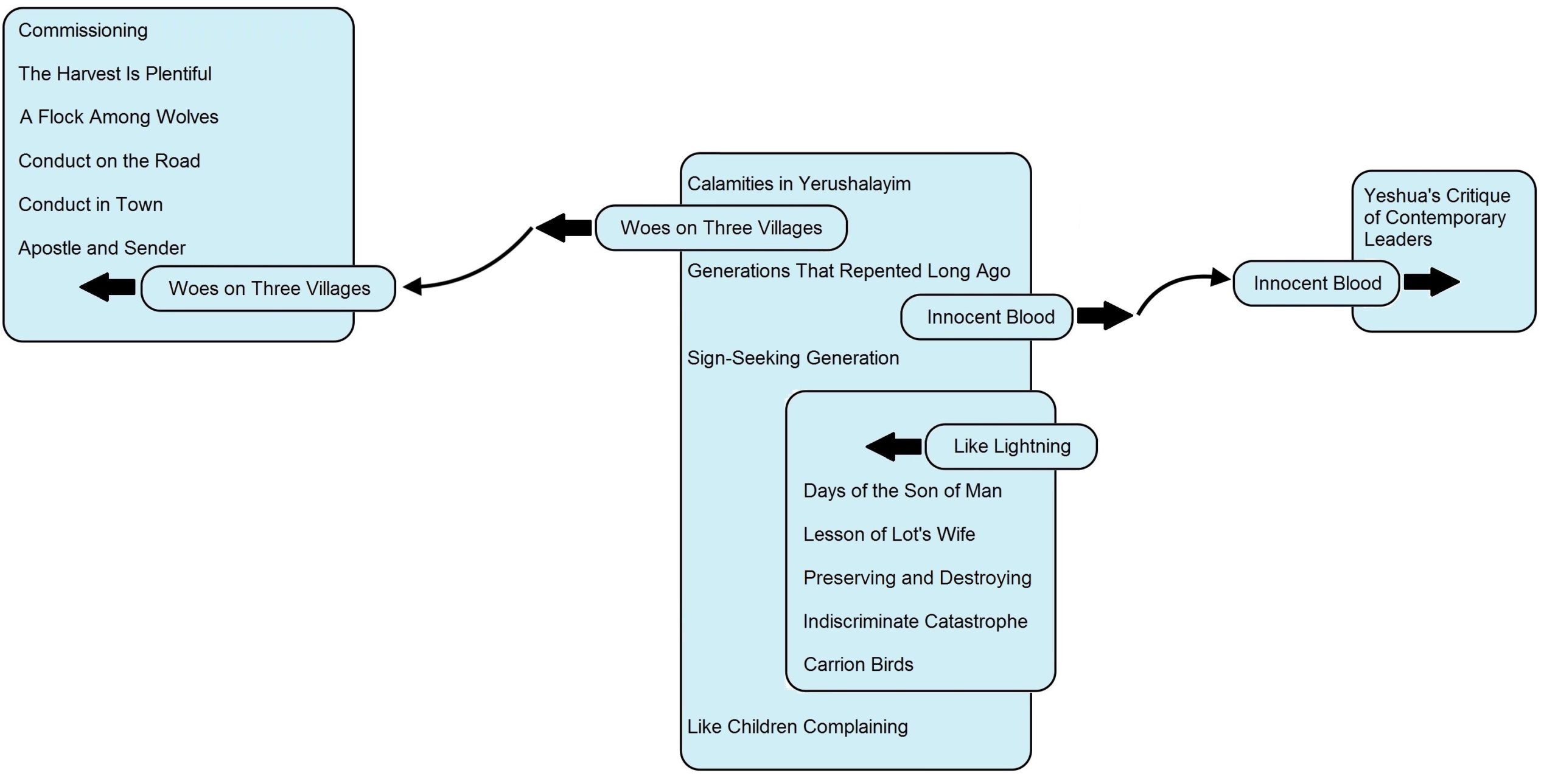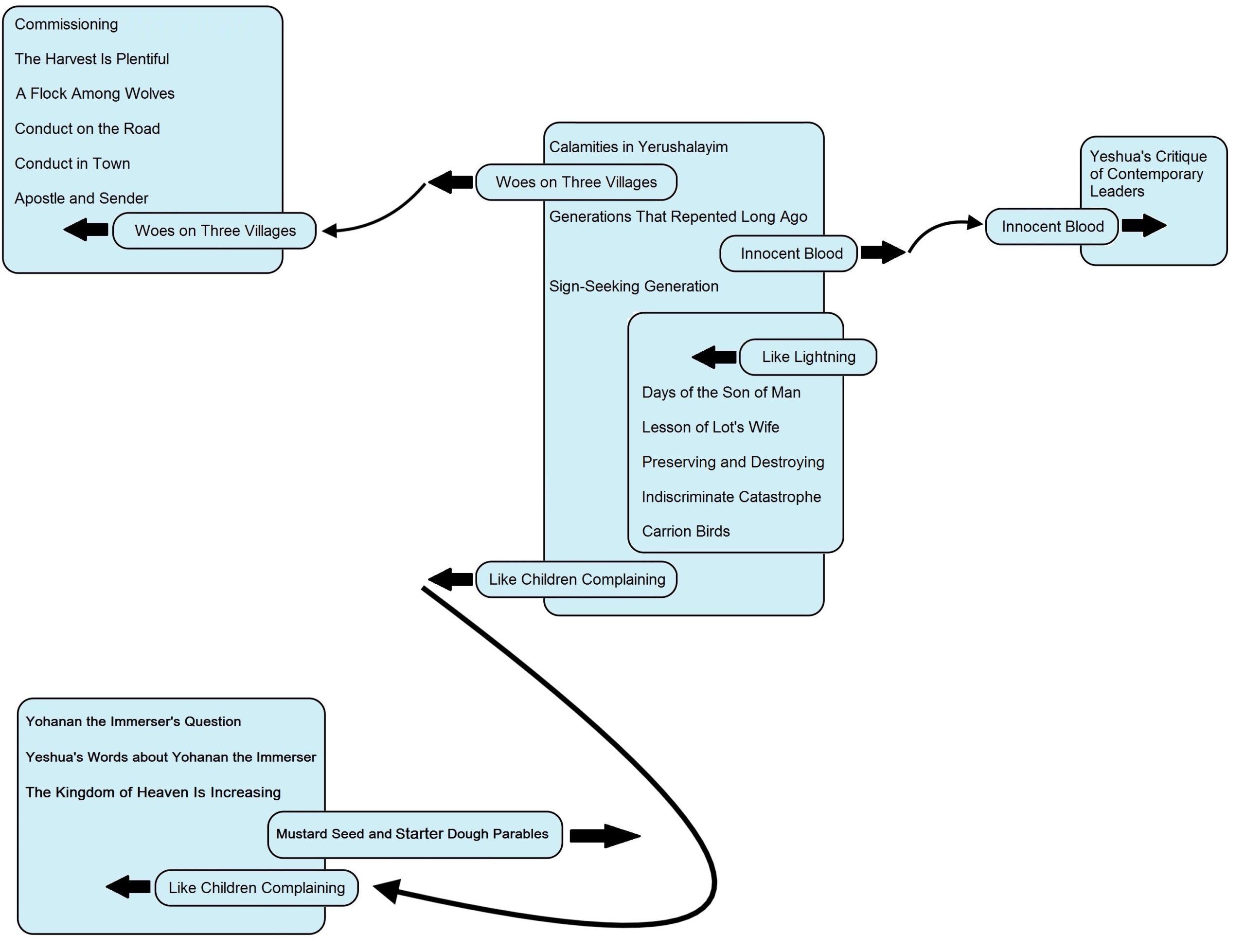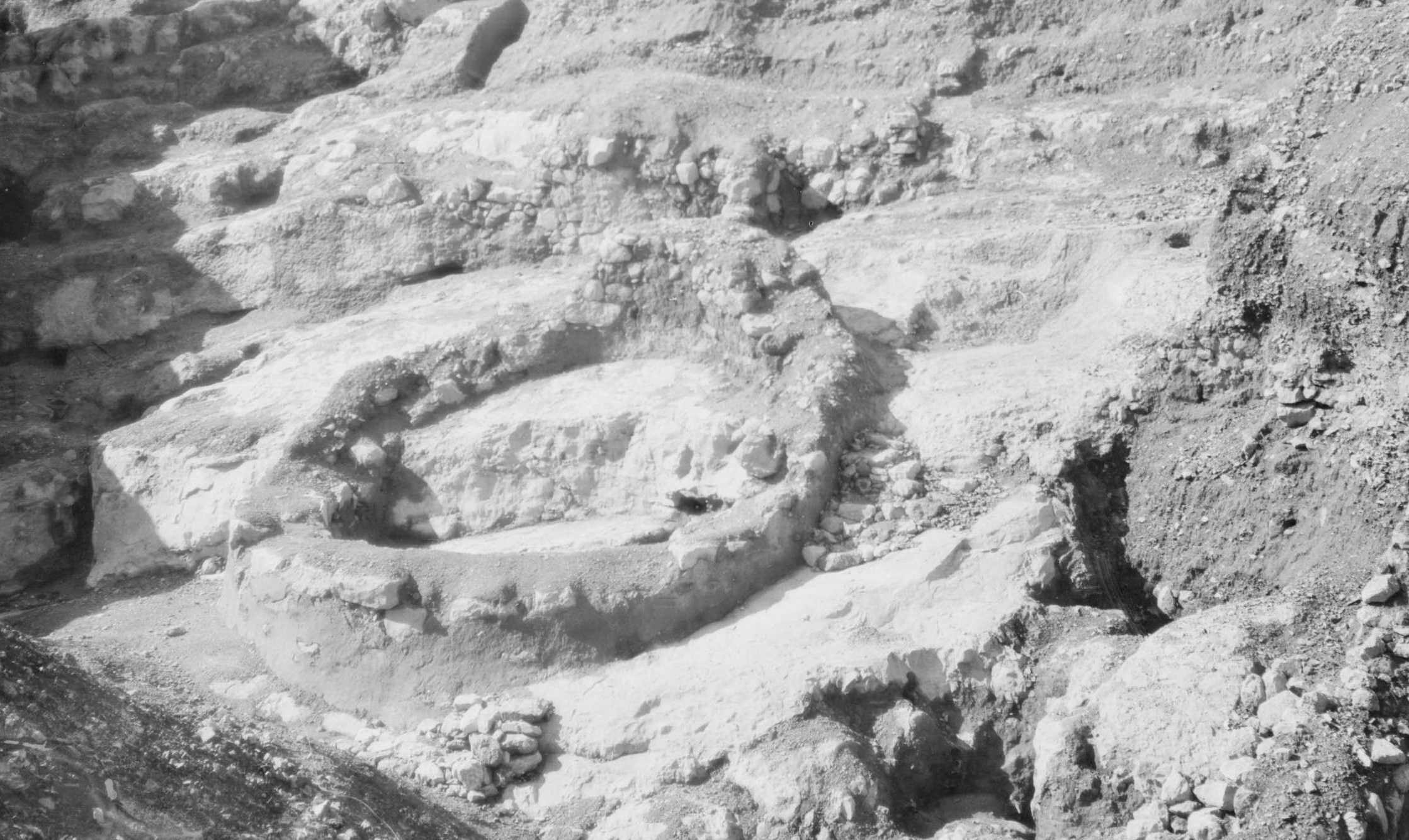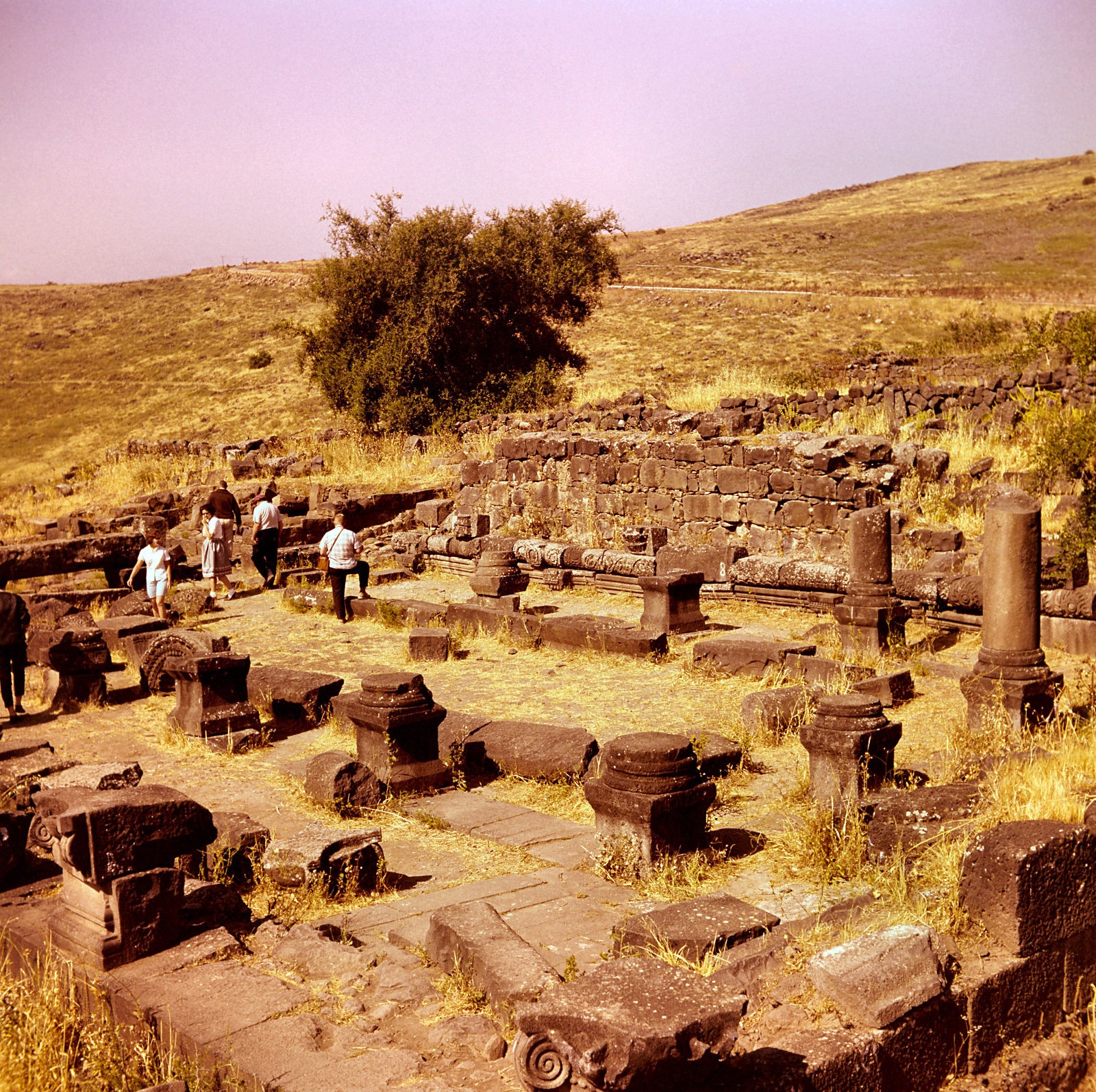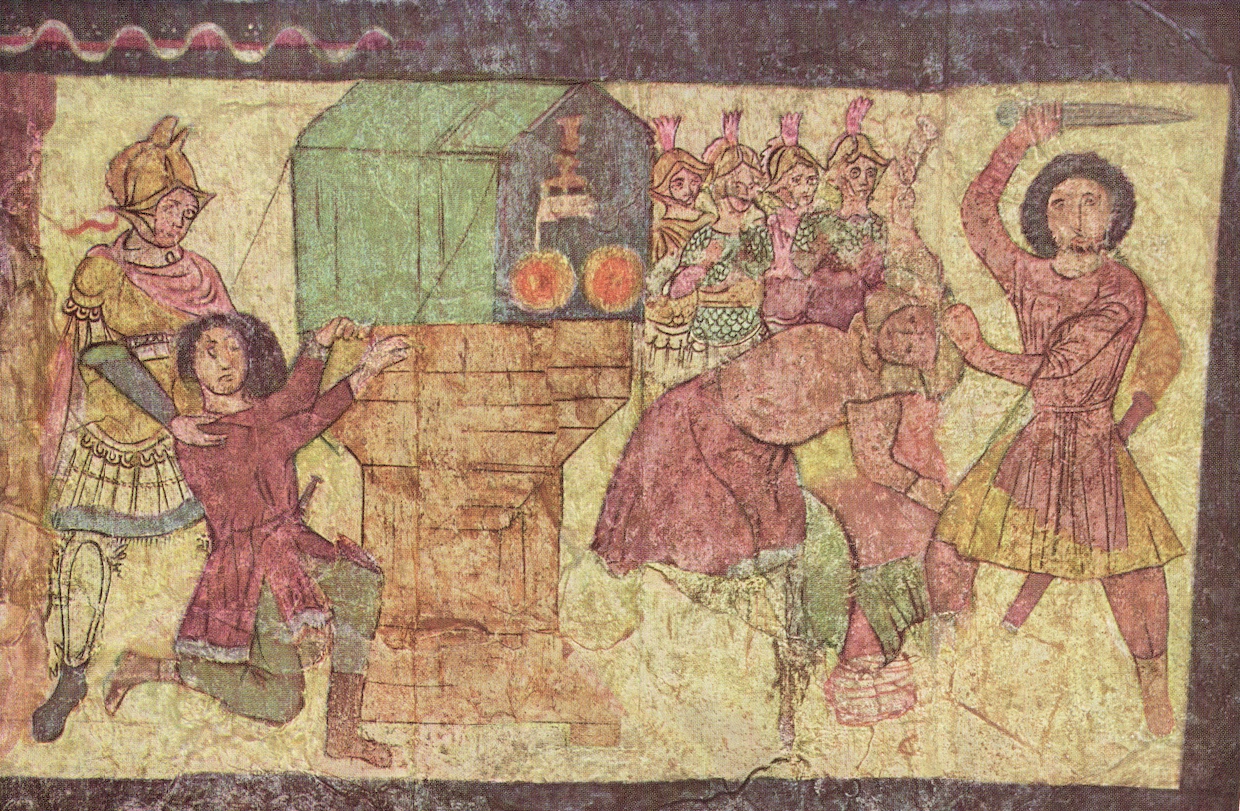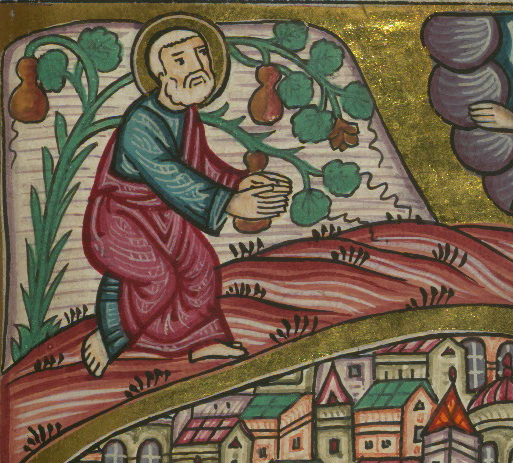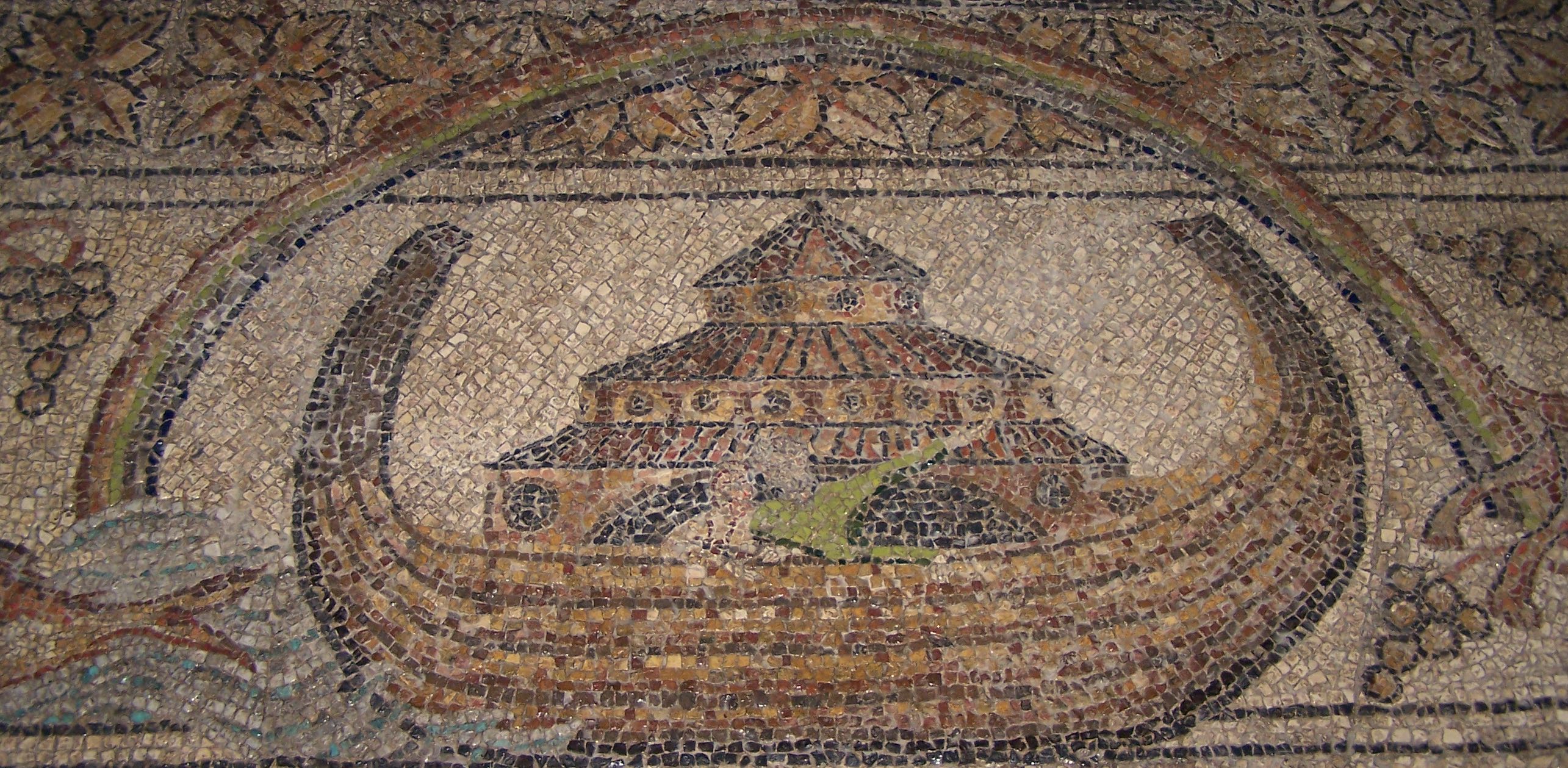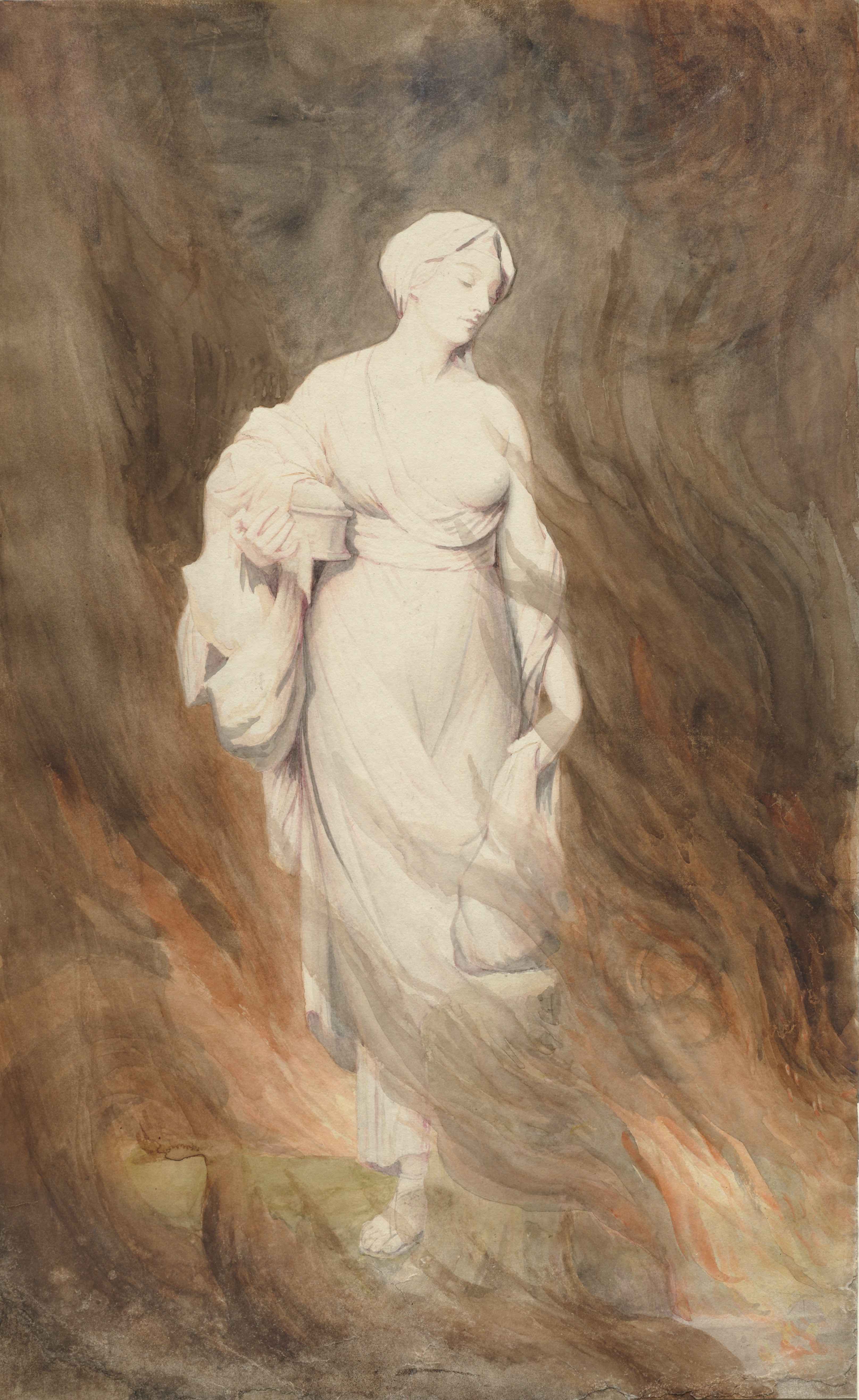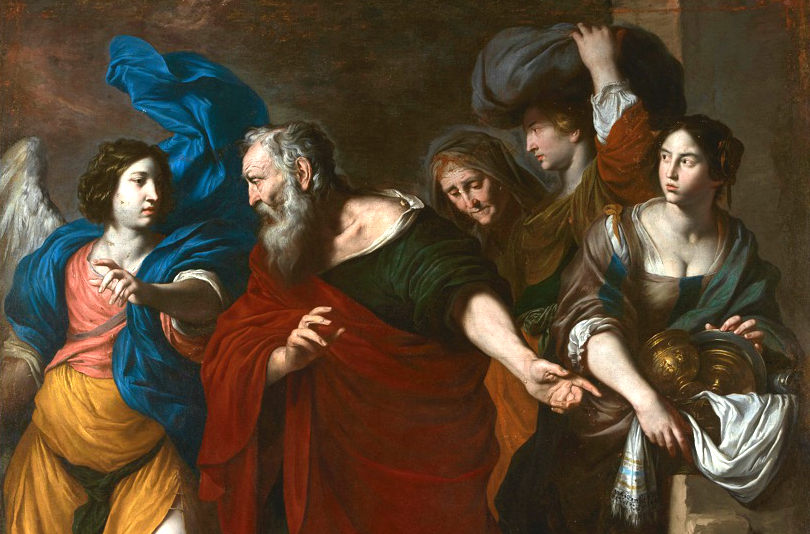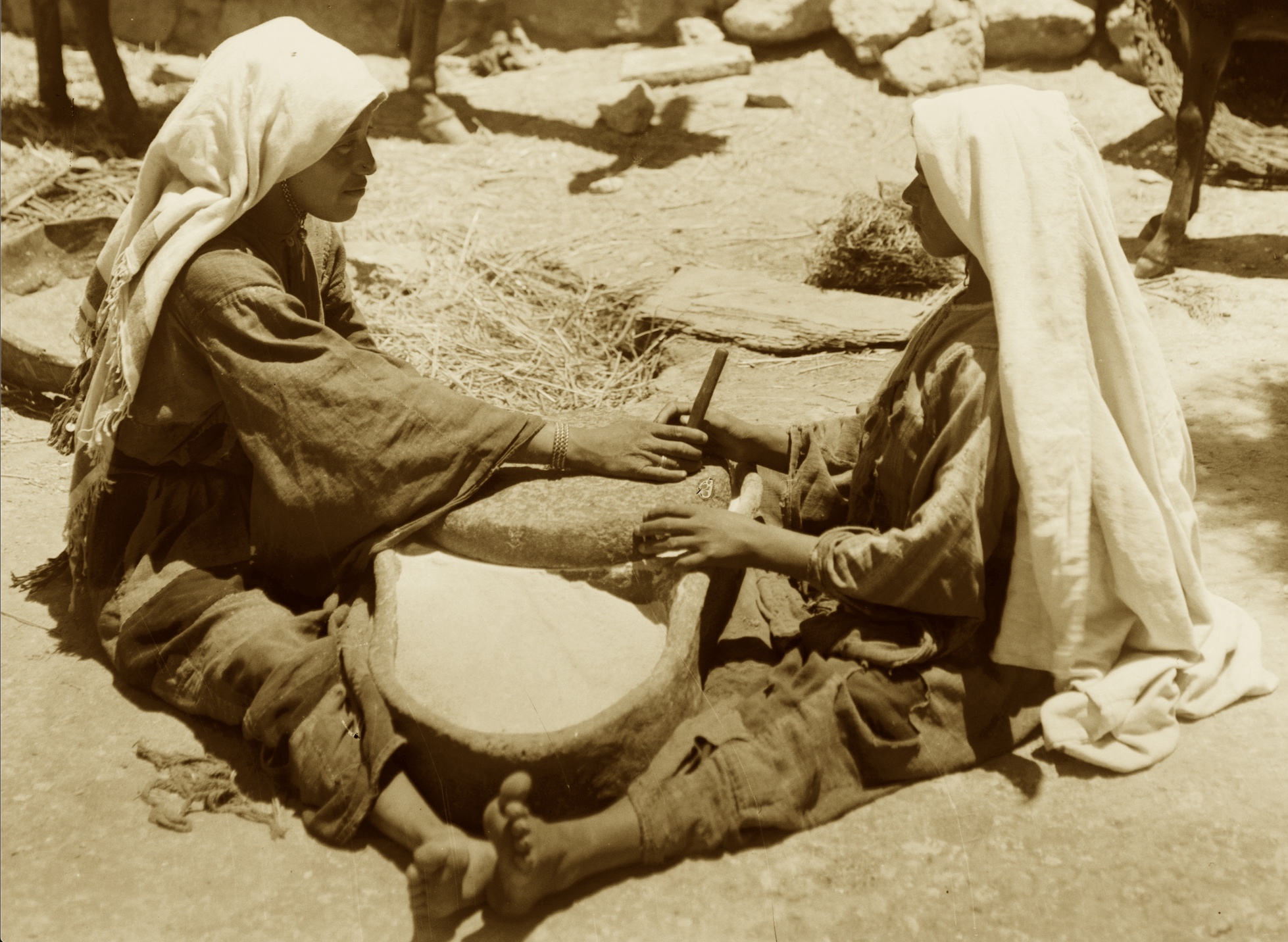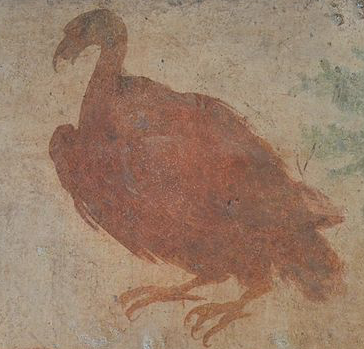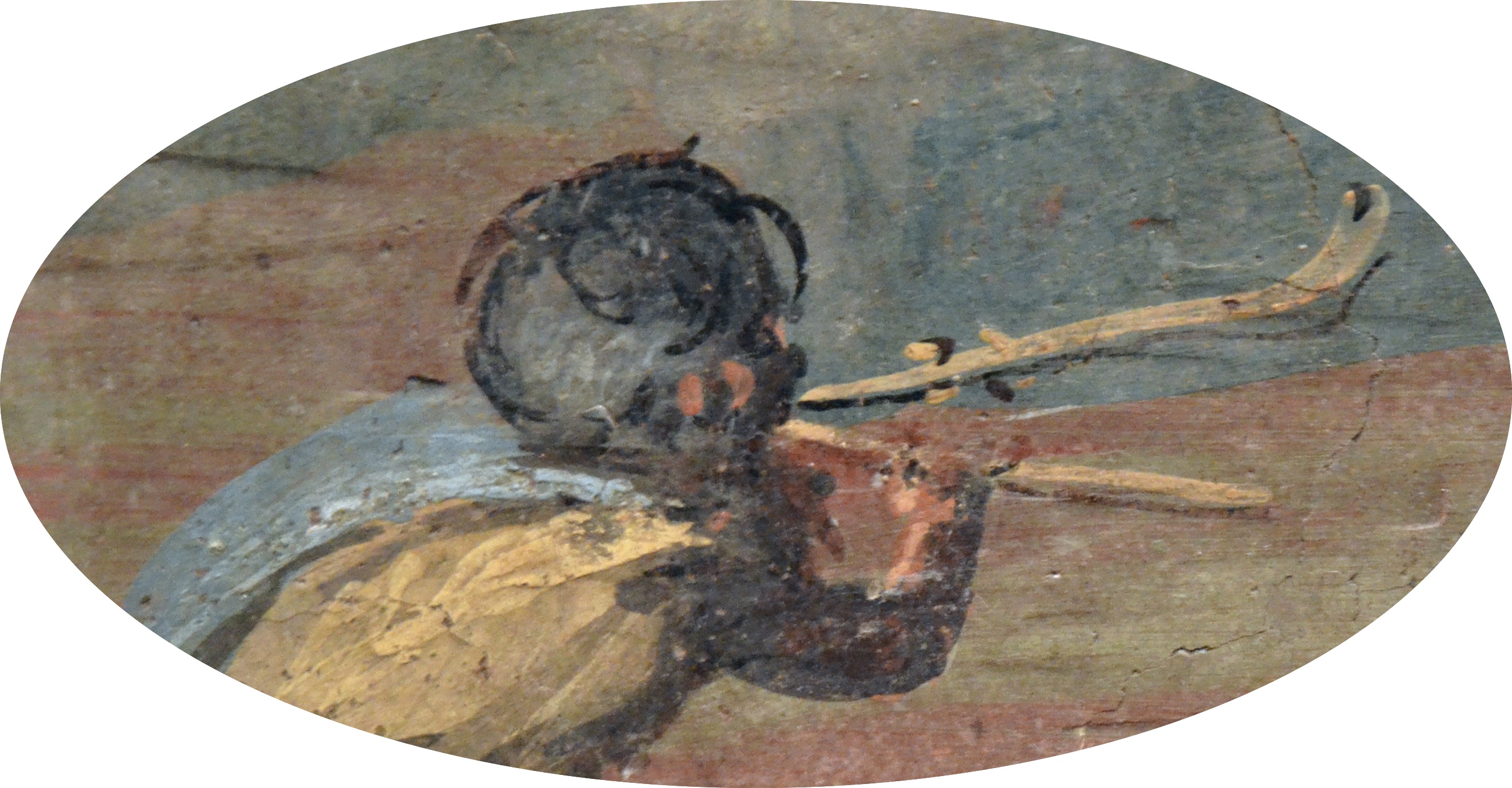Updated: 4 October 2023
The pericopae contained in the “Choose Repentance or Destruction” complex mark a shift in Jesus’ outlook, from one of optimism that his generation was exceedingly fortunate because the Kingdom of Heaven was being revealed to them (cf., e.g., the “Success of the Twelve” complex) to one of pessimism that the majority of his contemporaries were not receiving the Kingdom of Heaven, and therefore a great catastrophe was in store for his generation. To understand how this shift in Jesus’ outlook took place, the political dimension of Jesus’ Kingdom of Heaven message must be given its due.
The most potent challenge to Judaism in Jesus’ day was the fact of Roman imperialism.[1] Roman rule of Israel (both the people and the land) appeared to contradict God’s promises in the Torah and the prophets that if the people of Israel faithfully observed the covenant, God would rule over them and they would enjoy freedom, security, prosperity and blessings in their land. But in spite of Israel’s faithfulness, the promises had not been realized. On the contrary, the people of Israel were ruled by a foreign empire that exploited the human and natural resources of their land, mercilessly suppressed dissent, and imposed its will even on the central place of Jewish worship, the Temple in Jerusalem.
Under these circumstances, many first-century Jews yearned for redemption, to be set free from the yoke of Roman rule. Divisions arose regarding how Israel’s redemption could be achieved.[2] The Essenes believed that by withdrawing into the desert, separating themselves from sinners, maintaining extreme ritual purity, and devoting themselves to Torah study they were preparing the way for God to redeem them. Ultimately, there would be a cosmic battle in which the Sons of Light (i.e., the members of the Sect) finally vanquished the Sons of Darkness (i.e., the Romans, together with all the Gentiles and even those in Israel who did not follow the ways of the Sect).[3]
Others, rejecting passivity, believed that what was required of Israel was a zealous devotion to Torah and the God of Israel. Only God had the right to reign over Israel, and it was precisely because of Israel’s willingness to bow to foreign rulers that God allowed them to languish under the yoke of Roman imperial rule. All God was waiting for was for Israel to refuse to submit any longer. If only they would rise up against their oppressors, refusing to pay tribute, or to take oaths of loyalty, or to offer prayers and sacrifices in the Temple for the emperor’s welfare, God would miraculously intervene on Israel’s behalf. Never mind that taking such a leap of “faith” would lead to all-out war with the mightiest empire the world had yet seen. God would redeem Israel for its singleness and purity of devotion.[4]
Still others believed that what Israel had to do was to accommodate its expectations to external realities. Israel could be faithful to God and make the best of Roman rule. Redemption could come in the form of personal religious experience and the hope of salvation in the world to come, or perhaps redemption would come when all Israel perfected its observance of the Torah in all its intricate details as worked out in the developing oral tradition.
The Pharisees appear to have been divided between these last two approaches. The School of Shammai reflected the populist views of the militant nationalist majority, while the School of Hillel advocated the more moderate approach of resigned coexistence.[5]

Politico-religious Spectrum of First-Century Jewish Society in the Land of Israel. Note the clustering of militant nationalist groups at the populist ideological center. Diagram courtesy of WholeStones.org.
Jesus’ message regarding the Kingdom of Heaven was different from any of the views of redemption reviewed thus far. According to Jesus, God was acting to redeem Israel, but not through a violent clash with the Romans.[6] Redemption was taking place through a spiritual and social renewal of Israel that emanated liberty from within. God had proclaimed his favor toward Israel, granting his people a general amnesty for their sins. In response, the people of Israel must forgive one another and release their brothers and sisters from monetary debts. Those who committed sins were invited to repent, and those who had always been living faithfully were to welcome back the repentant with open arms, rejoicing in what God had done. The healing of physical ailments and the emotional, mental and spiritual healing that came about through the exorcism of demons were a sign that the satanic spirit of imperialism was losing its grip on Israel.[7] As the community of God’s people was renewed, Israel would be able to resist the dehumanizing system of Roman rule. Instead of cowering in fear, the divine image in humanity would shine through, transforming the oppressed into the redeemed and the oppressor into a brother.[8] Redemption would not merely endow Israel with political liberty; all of humankind would be brought together under the reign of the one true God. Creation, which had gone wild and threatening since sin and death had poisoned the world, would be made whole once more as all things became reconciled to their Creator. True redemption could never come through force of arms, by coercion, or by terror. These were the weapons of the enemy; using them only increased the enemy’s power. But when through acts of mercy and compassion and loving one’s enemy Israel tapped into the Holy Spirit’s power, then nothing, not even the mighty legions of Rome, could prevent redemption from transforming the world.
This was Jesus’ optimistic message, and although his outlook shifted over time there is no reason to suppose that he ever lost faith in the Kingdom of Heaven or the redeeming power of the Holy Spirit. Where Jesus’ optimism faltered was in his contemporaries’ receptiveness to his message.[9] At a certain point Jesus came to the realization that, by and large, the people of his generation were not going to accept his vision of redemption. Militant Jewish nationalism, with its promises of glorious victory and bloody revenge, had captured the popular imagination. Fanatical zeal for Torah, hatred of non-Jews, intolerance for fellow Jews who deviated from the norm—these all too human reactions to oppression were easier for the masses to latch onto than Jesus’ sublime vision of the Kingdom of Heaven.
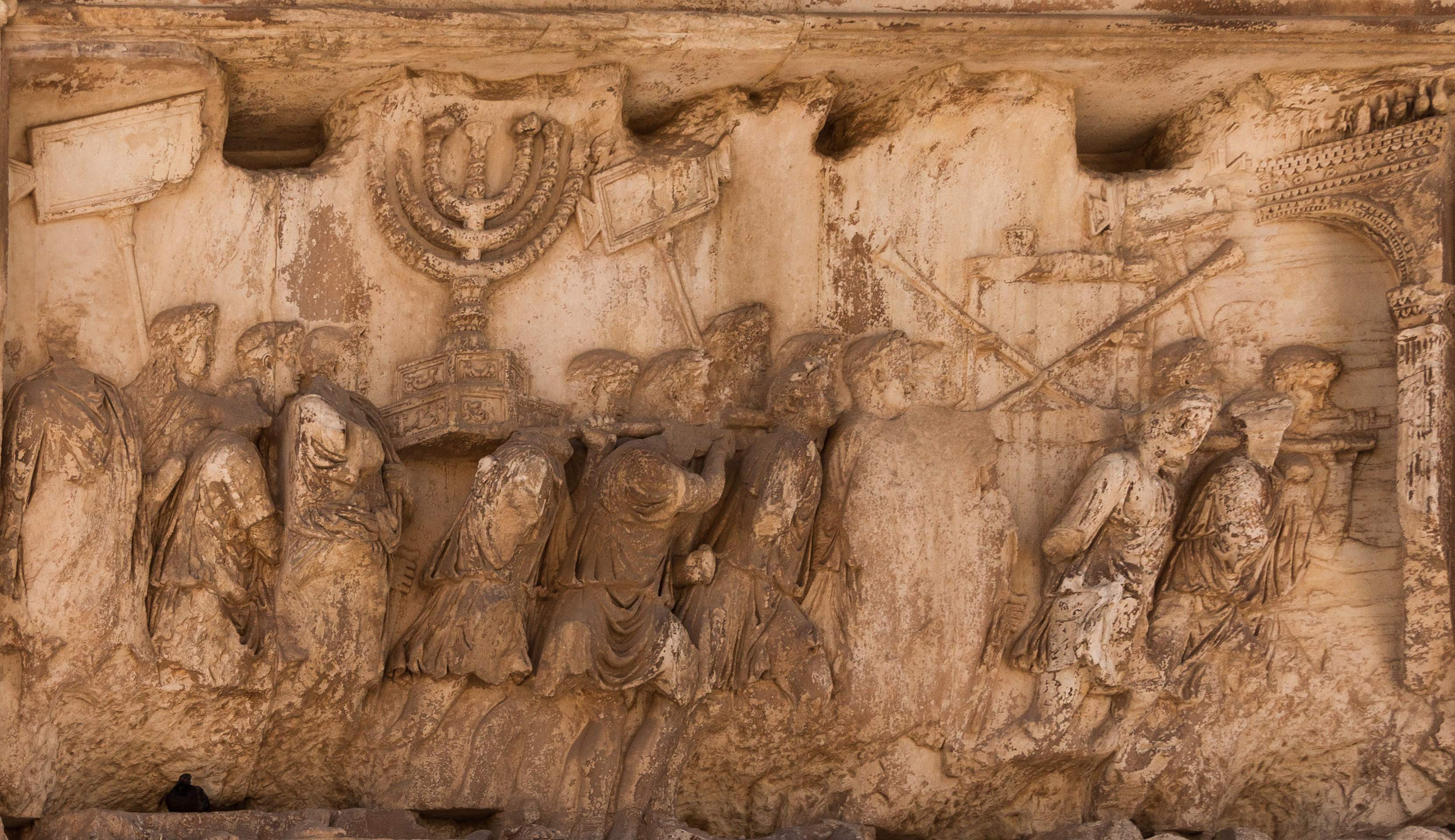
The Jerusalem Treasure relief from the Arch of Titus in Rome commemorating the Roman victory in 70 C.E. over the Jewish uprising in Judea. Image courtesy of Wikimedia Commons.
When Jesus realized that his understanding of the Kingdom of Heaven would not be received by the people as a whole, he knew that the fate of his generation had been sealed. Their foolhardy notions of achieving redemption by force of arms would inevitably lead to a military confrontation with the Roman Empire that would have tragic results for Israel. The Temple would be destroyed, Jerusalem would be trampled by the Gentiles, and the redemption of Israel, humankind and the whole of creation would be indefinitely delayed. These near-term consequences were tragic enough, but Jesus also knew that his generation would be answerable to God at the final judgment for rejecting his offer of redemption.
Jesus’ pessimistic certainty that his generation would face political consequences in the near term and ultimate consequences at the final judgment finds expression in a series of sayings concerning his contemporaries’ refusal to repent. We have organized these sayings according to the narrative→teaching→illustration(s) pattern Lindsey believed was characteristic of the literary units or “complexes” into which the original biography of Jesus was organized. These “complexes” consisted of a narrative incident that became the impetus for a teaching discourse, which Jesus concluded with an illustration (or illustrations). In the “Choose Repentance or Destruction” complex the narrative incident consists of the arrival of certain unnamed persons who come to Jesus with a report that Pilate had slaughtered a group of Galilean pilgrims, mingling their blood with that of their sacrifices (Calamities in Yerushalayim). These persons and the people who were gathered to listen to Jesus wanted to know how he would respond. Would he declare that the Roman oppression had become intolerable, and that the time to take up arms against the empire had finally arrived? Would he speak blandly about how it was necessary to make the best of a bad situation, and that God would sort it all out in the end? Whatever they might have expected from Jesus, he surprised them by warning that Pilate’s massacre was but a harbinger of things to come. Unless at this late hour Israel repented of its nationalist ideas of a militant uprising, many more innocents would suffer the same kind of fate.
This incident became the launching point of a discourse in which Jesus warned his contemporaries of their fate. Pronouncing a series of woes, Jesus predicted that it would go easier for Tyre and Sidon and even Sodom and Gomorrah at the final judgment than for the villages that had rejected the Kingdom of Heaven (Woes on Three Villages). At the final judgment the Queen of Sheba and the people of Nineveh would bring damning testimony against the generation that had failed to listen to Jesus. The Queen of Sheba had journeyed from the ends of the earth in search of wisdom, but a wisdom greater than Solomon’s had been shared with this generation and they had refused to accept it. The people of Nineveh had listened to Jonah when he warned them their city would be destroyed, but this generation had been warned that a destruction even more terrible was in store for them, yet they had refused to repent (Generations That Repented Long Ago). The personified Wisdom of God had declared to the last generation before the first Temple’s destruction that they would be held accountable for all the innocent blood that had been spilled on the holy land. What Lady Wisdom had declared concerning that generation would be true of Jesus’ generation too (Innocent Blood). In their foolishness this generation kept searching for omens that their redemption was near. But their opportunity for redemption had passed. The only sign that would be given to them was a portent of doom: Jesus himself, in the guise of the Son of Man, would be a living sign bearing testimony against this generation (Sign-Seeking Generation).
Having mentioned his role as the Son of Man, a prophet of doom to his generation, Jesus went on to describe the catastrophe that would play out “in the days of the Son of Man” (i.e., during the time in which Jesus still served as a sign of warning to his generation). Just as Noah’s generation had been swept away by the flood, so would this generation be swept away by an equally devastating catastrophe. Just as the people of Sodom and Gomorrah had been destroyed in fire and brimstone, so this generation will be destroyed by an equally devastating catastrophe (Days of the Son of Man). When that catastrophe arrives, the only thing for the people to do would be to make a run for it. They must not be like Lot’s wife, who looked back, or they, too, would be destroyed (Lesson of Lot’s Wife). They must not be like Lot, who hesitated over his possessions and nearly forfeited his soul (Preserving and Destroying). For when the catastrophe strikes no one will escape just because they had been a good person. Some will be taken in battle or dragged off as slaves. Some will be left to clean up the mess. But the coming catastrophe will not discriminate: one way or another everyone will suffer the terrible consequences (Indiscriminate Catastrophe).
It was at this point that Jesus uttered the cryptic words “Where the corpse is, there the carrion birds will gather.” This disturbing image is likely an apocalyptic interpretation of the birds that descended on the carcasses of Abraham’s offering (Gen. 15:11). The carrion birds represented the Roman armies preying upon the carcass of Israel in defeat (Carrion Birds).
To conclude his discourse Jesus looked retrospectively over his own career and that of his older contemporary, John the Baptist. He compared his generation to jealous and resentful children who complain that their friends won’t play with them. John the Baptist warned his generation, but because his Essene-like separatism did not allow him to eat with them, they became resentful, and instead of repenting they accused John of being demon-possessed. Jesus, the Son of Man, warned his generation, but because they did not approve of his Hasid-like receptivity toward repentant sinners, they became jealous, and instead of repenting they accused Jesus of being a glutton and drunkard. Unfortunately for this generation, however, Lady Wisdom has been proved right by her daughters and sons (Like Children Complaining).
Although these pericopae originally existed as a single unit, the Anthologizer separated this complex into smaller blocks and rearranged them to suit his purposes. He attached the Woes on Three Villages to the end of the Sending the Twelve discourse because the fate of the cities that failed to show hospitality to the apostles was described in terms strikingly similar to the fate pronounced upon Capernaum in the woes.
The Anthologizer attached Innocent Blood to the end of a series of woes Jesus pronounced against the Pharisees and other prominent figures in first-century Jewish society, since both passages made reference to the killing of the prophets.
A large segment of the discourse pertaining to the catastrophe that would unfold “in the days of the Son of Man” the Anthologizer preserved intact, but by attaching it to Like Lightning, a saying pertaining to the Son of Man’s eschatological coming, the Anthologizer created the false impression that the events that would transpire during “the days of the Son of Man” were eschatological predictions, rather than historical events that were to take place shortly.
The Anthologizer attached Like Children Complaining, which mentions John the Baptist, to the end of a unit containing other sayings on John the Baptist.
The Anthologizer probably moved Calamities in Yerushalayim to a series of other narrative incidents. The remaining pericopae, Generations that Repented Long Ago and Sign-Seeking Generation, the Anthologizer combined into a single unit, since both relate to the story of Jonah.
Click on the following titles to view the Reconstruction and Commentary for each pericope in the “Choose Repentance or Destruction” complex.
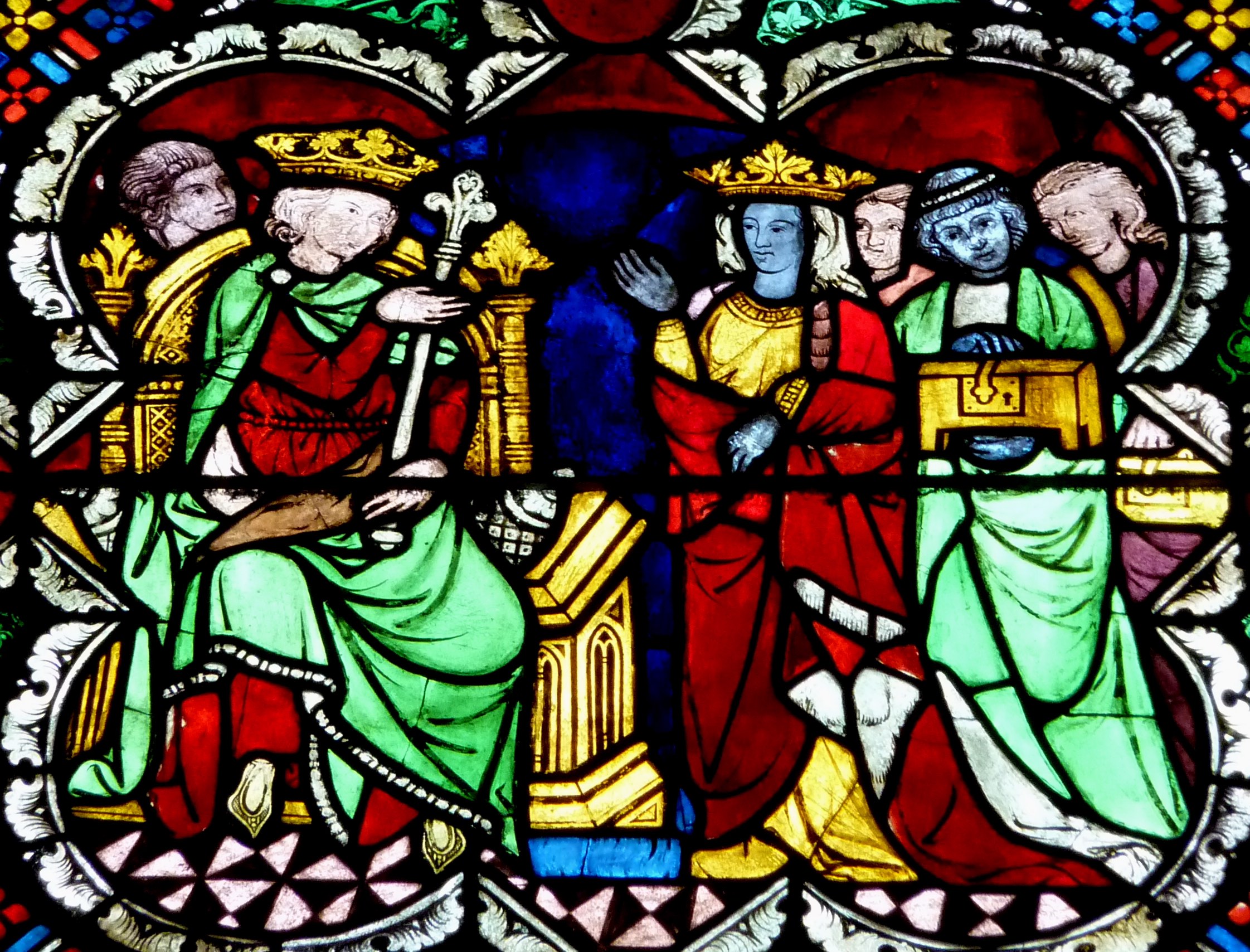 Generations that Repented Long Ago
Generations that Repented Long Ago
To demonstrate how the pieces of the “Choose Repentance or Destruction” complex fit together, we have assembled our paraphrases of the Hebrew reconstructions of the individual segments below. We have also assembled the Greek and Hebrew reconstructions of the entire complex and presented them following the English paraphrase.
When Yeshua was told about the Galilean pilgrims whose blood Pilatos had mixed with that of their sacrificial animals he replied, “Do you consider these Galileans to be worse sinners than all the rest? Of course not! But I tell you this: Unless all of you repent, this is how you will be destroyed [Deut. 8:20].
“Or those eighteen persons who were crushed to death by the tower that collapsed in Shiloah—do you consider them to be worse debtors than all the rest of Yerushalayim’s residents? Of course not! But I tell you this: Unless all of you repent, this is how you will be destroyed [Deut. 8:20].”
[Thereupon Yeshua began upbraiding certain villages that had not repented, saying:] “Woe to you, Kerazin! Woe to you, Bet Tzaydan! For if the mighty deeds that God performed in you had been performed in Tzor and Tzidon, the inhabitants of those cities would have long since sat in sacking and ashes and repented. But now it will be easier in the final judgment for Tzor and Tzidon than it will be for you.
“And as for you, Kefar Nahum! Will you be elevated to the celestial spheres? No! You will end up in the netherworld. For if the mighty deeds that God performed in you had been performed in Sedom, it would have continued to be a thriving city to this very day. But now it will be easier in the final judgment for Sedom than it will be for you.
“At the final judgment the Queen of Teman will arise to testify against this generation and prove that it has no excuse. She came from the world’s end to listen to King Shlomoh’s wisdom, but a wisdom more profound than Shlomoh’s is right here in front of you, and still you haven’t listened!
“At the final judgment the inhabitants of Nineveh will arise to testify against this generation and prove that it has no excuse. They repented when Yonah proclaimed his message of doom, but a more dire message is being proclaimed to you, and still you haven’t changed your ways!
“Thus Lady Wisdom herself declared, ‘I will send them prophets and emissaries, sages and scribes. They will kill the former and harry the latter. Therefore, this generation will have to answer for all the innocent blood poured out on the holy land, from the murder of Hevel down to that of Zecharyah, who died between the altar and the Temple.’
“Alas, what Lady Wisdom said is also true of you! God will demand from this generation all the innocent blood ever poured out because you will not repent.”
[And he began to say,] “This generation is a wicked one! It desperately searches for any sign of deliverance, but no such sign will be given to it. Rather, as Yonah was a portent of doom to the inhabitants of Nineveh, so henceforth will the Son of Man be a portent of doom to this generation.
“The way it happened in the days of Noah will be how it happens in the days of the Son of Man: they carried on eating and drinking, contracting and arranging marriages until the day Noah embarked on the ark and the flood came and killed them all.
“And the way it happened in the days of Lot—when they carried on eating and drinking, buying and selling, planting and building until the day Lot departed from Sodom and God rained down fire and sulfur from the sky and killed them all—that’s how it will happen in the days of the Son of Man.
“On the day calamity strikes, a person on the roof whose belongings are inside should not go down to get them. Neither should a person outdoors look back—remember what happened to Lot’s wife!
“Whoever wants to preserve his life when the calamity strikes will have to destroy his attachment to possessions, but whoever does forsake his possessions will live to see another day.
“Yes! And I’ll tell you what: [On the day calamity strikes] two people will be lying on a bed: one of them will be removed, and one of them will be left unharmed. Two people will be in a field: one of them will be removed, and one of them will be left unharmed. Two women will be grinding flour with a mill: one of them will be removed, and one of them will be left unharmed.
“Where the carcass is, there the carrion birds assemble.
“So, what comparison can I make that will describe the behavior of this generation? What are they like? They are like children playing in a market who complain about their friends with the chant, ‘We struck up a tune for you on the pipe, but you would not dance! We sang you a sorrowful tune, but you would not show signs of grief!’
“For when Yohanan the Immerser came partaking of neither food nor drink with them, this generation said, ‘He must be possessed by a demon!’ But when the Son of Man came partaking of both food and drink with them, this generation said, ‘He must be a glutton and a drunkard, a friend of toll collectors and sinners!’
“But Lady Wisdom is vindicated by her sons and daughters.”
Greek Reconstruction
ἐγένετο δὲ ἐν αὐτῷ τῷ καιρῷ ἀπήγγειλαν αὐτῷ περὶ τῶν Γαλειλαίων ὧν τὸ αἷμα Πειλᾶτος ἔμιξεν μετὰ τῶν θυσιῶν αὐτῶν καὶ ἀποκριθεὶς εἶπεν αὐτοῖς δοκεῖτε ὅτι οἱ Γαλειλαῖοι οὗτοι ἁμαρτωλοὶ ἐγένοντο παρὰ πάντας τοὺς Γαλειλαίους οὐχί λέγω ὑμῖν ἀλλ᾿ ἐὰν μὴ μετανοῆτε πάντες ὡσαύτως ἀπολεῖσθε ἢ ἐκεῖνοι οἱ δεκαοκτὼ ἐφ᾿ οὓς ἔπεσεν ὁ πύργος ἐν τῷ Σιλωὰμ καὶ ἀπέκτεινεν αὐτούς δοκεῖτε ὅτι αὐτοὶ ὀφειλέται ἐγένοντο παρὰ πάντας τοὺς κατοικοῦντας Ἰερουσαλήμ οὐχί λέγω ὑμῖν ἀλλ᾿ ἐὰν μὴ μετανοῆτε πάντες ὡσαύτως ἀπολεῖσθε
[καὶ ἤρξατο ὀνειδίζειν τὰς πόλεις ἃς οὐ μετενόησαν λέγων] οὐαί σοι Χοραζείν οὐαί σοι Βηθσαϊδάν ὅτι εἰ ἐν Τύρῳ καὶ Σειδῶνι ἐγενήθησαν αἱ δυνάμεις αἱ γενόμεναι ἐν ὑμῖν πάλαι ἂν ἐν σάκκῳ καὶ σποδῷ καθήμενοι μετενόησαν πλὴν Τύρῳ καὶ Σειδῶνι ἀνεκτότερον ἔσται ἐν τῇ κρίσει ἢ ὑμῖν καὶ σύ Καφαρναούμ μὴ ἕως οὐρανοῦ ὑψωθήσῃ ἕως τοῦ ᾅδου καταβιβασθήσῃ ὅτι εἰ ἐν Σοδόμοις ἐγενήθησαν αἱ δυνάμεις αἱ γενόμεναι ἐν σοί ἔμεινεν ἕως τῆς σήμερον πλὴν Σοδόμοις ἀνεκτότερον ἔσται ἐν τῇ κρίσει ἢ σοί
βασίλισσα νότου ἐγερθήσεται ἐν τῇ κρίσει μετὰ τῆς γενεᾶς ταύτης καὶ κατακρινεῖ αὐτήν ὅτι ἦλθεν ἐκ τῶν περάτων τῆς γῆς ἀκοῦσαι τὴν σοφίαν Σολομῶνος καὶ ἰδοὺ πλεῖον Σολομῶνος ὧδε ἄνδρες Νινευεῖται ἀναστήσονται ἐν τῇ κρίσει μετὰ τῆς γενεᾶς ταύτης καὶ κατακρινοῦσιν αὐτήν ὅτι μετενόησαν εἰς τὸ κήρυγμα Ἰωνᾶ καὶ ἰδοὺ πλεῖον Ἰωνᾶ ὧδε
διὰ τοῦτο καὶ ἡ σοφία τοῦ θεοῦ εἶπεν ἀποστελῶ εἰς αὐτοὺς προφήτας καὶ ἀποστόλους καὶ σοφοὺς καὶ γραμματεῖς ἐξ αὐτῶν ἀποκτενοῦσιν καὶ ἐξ αὐτῶν διώξουσιν ἵνα ἐκζητηθῇ πᾶν αἷμα δίκαιον ἐκχυννόμενον ἐπὶ τῆς γῆς ἀπὸ τῆς γενεᾶς ταύτης ἀπὸ αἵματος Ἅβελ ἕως αἵματος Ζαχαρίου τοῦ ἀπολομένου μεταξὺ τοῦ θυσιαστηρίου καὶ τοῦ οἴκου ἀμὴν λέγω ὑμῖν ἐκζητηθήσεται ἀπὸ τῆς γενεᾶς ταύτης
[καὶ ἤρξατο λέγειν] ἡ γενεὰ αὕτη γενεὰ πονηρά ἐστιν σημεῖον ζητεῖ καὶ σημεῖον οὐ δοθήσεται αὐτῇ εἰ μὴ τὸ σημεῖον Ἰωνᾶ καθὼς γὰρ ἐγένετο Ἰωνᾶς τοῖς Νινευίταις σημεῖον οὕτως ἔσται ὁ υἱὸς τοῦ ἀνθρώπου τῇ γενεᾷ ταύτῃ
καὶ καθὼς ἐγένετο ἐν ταῖς ἡμέραις Νῶε οὕτως ἔσται ἐν ταῖς ἡμέραις τοῦ υἱοῦ τοῦ ἀνθρώπου ἦσαν ἐσθίοντες καὶ πίνοντες γαμοῦντες καὶ γαμίζοντες ἄχρι ἧς ἡμέρας εἰσῆλθεν Νῶε εἰς τὴν κιβωτὸν καὶ ἦλθεν ὁ κατακλυσμὸς καὶ ἀπώλεσεν πάντας
καὶ καθὼς ἐγένετο ἐν ταῖς ἡμέραις Λώτ ἦσαν ἐσθίοντες καὶ πίνοντες ἀγοράζοντες καὶ πωλοῦντες φυτεύοντες καὶ οἰκοδομοῦντες ἄχρι ἧς ἡμέρας ἐξῆλθεν Λὼτ ἀπὸ Σοδόμων καὶ ἔβρεξεν πῦρ καὶ θεῖον ἀπ᾿ οὐρανοῦ καὶ ἀπώλεσεν πάντας οὕτως ἔσται ἐν ταῖς ἡμέραις τοῦ υἱοῦ τοῦ ἀνθρώπου
ἐν ἐκείνῃ τῇ ἡμέρᾳ ὁ ἐπὶ τοῦ δώματος καὶ τὰ σκεύη αὐτοῦ ἐν τῇ οἰκίᾳ μὴ καταβάτω ἆραι αὐτά καὶ ὁ ἐν τῷ ἀγρῷ μὴ ἐπιστρεψάτω εἰς τὰ ὀπίσω μνημονεύετε τῆς γυναικὸς Λώτ
ὃς ἐὰν ζητήσῃ τὴν ψυχὴν αὐτοῦ περιποιήσασθαι ἀπολέσει αὐτήν ὃς δ᾿ ἂν ἀπολέσῃ τὴν ψυχὴν αὐτοῦ ζῳογονήσει αὐτήν
ἀμὴν λέγω ὑμῖν [ἐν ἐκείνῃ τῇ ἡμέρᾳ] ἔσονται δύο ἐπὶ τῆς κλίνης εἷς παραλαμβάνεται καὶ εἷς ἀφίεται ἔσονται δύο ἐν τῷ ἀγρῷ εἷς παραλαμβάνεται καὶ εἷς ἀφίεται ἔσονται δύο ἀλήθουσαι ἐν τῷ μύλῳ μία παραλαμβάνεται καὶ μία ἀφίεται
ὅπου τὸ πτῶμα ἐκεῖ συναχθήσονται οἱ ἀετοί
τίνι οὖν ὁμοιώσω τὴν γενεὰν ταύτην καὶ τίνι εἰσὶν ὅμοιοι ὅμοιοί εἰσιν παιδίοις καθημένοις ἐν ἀγορᾷ ἃ προσφωνοῦντα τοῖς ἑτέροις λέγουσιν ηὐλήσαμεν ὑμῖν καὶ οὐκ ὠρχήσασθε ἐθρηνήσαμεν καὶ οὐκ ἐκόψασθε ἦλθεν γὰρ Ἰωάννης ὁ βαπτιστὴς μὴ ἐσθίων μήτε πίνων καὶ λέγουσιν δαιμόνιον ἔχει ἦλθεν ὁ υἱὸς τοῦ ἀνθρώπου ἐσθίων καὶ πίνων καὶ λέγουσιν ἰδοὺ ἄνθρωπος φάγος καὶ οἰνοπότης φίλος τελωνῶν καὶ ἁμαρτωλῶν καὶ ἐδικαιώθη ἡ σοφία ἀπὸ τῶν τέκνων αὐτῆς
Hebrew Reconstruction
וַיְהִי בָּעֵת הַהִיא וַיַּגִּידוּ לוֹ עַל הַגְּלִלִאִים שֶׁדָּמָם פִּילָטוֹס עֵרֵב בְּדַם זִבְחֵיהֶם וַיַּעַן וַיֹּאמֶר לָהֶם אַתֶּם סְבוּרִים שֶׁהַגְּלִלִאִים הָאֵלּוּ רְשָׁעִים הָיוּ מִכָּל הַגְּלִלִאִים לֹא כִי אֶלָּא אֲנִי אוֹמֵר לָכֶם אִם לֹא תַעֲשׂוּ תְּשׁוּבָה כֻּלְּכֶם כֵּן תֹאבֵדוּן וְאוֹתָם שְׁמוֹנָה הֶעָשָׂר שֶׁעֲלֵיהֶם נָפַל הַמִּגְדָּל בְּשִׁילוֹחַ וַהֲרָגָם אַתֶּם סְבוּרִים שֶׁהֵם חַיָּיבִים הָיוּ מִכָּל ישְׁבֵי יְרוּשָׁלַיִם לֹא כִי אֶלָּא אֲנִי אוֹמֵר לָכֶם אִם לֹא תַעֲשׂוּ תְּשׁוּבָה כֻּלְּכֶם כֵּן תֹאבֵדוּן
[וַיָּחֶל לְחָרֵף אֶת הֶעָרִים שֶׁלֹּא עָשׂוּ תְּשׁוּבָה לֵאמֹר] אִי לָךְ כְּרָזִין אִי לָךְ בֵּית צַיְדָן שֶׁאִילּוּ בְּצוֹר וְצִידוֹן נַעֲשׂוּ הַגְּבוּרוֹת שֶׁהָיוּ עוֹשִׂים בָּכֶן כְּבָר הָיוּ ישְׁבוֹת בְּשַׂק וָאֵפֶר וְעוֹשׂוֹת תְּשׁוּבָה אֲבָל לְצוֹר וְצִידוֹן נוֹחַ יִהְיֶה בַּדִּין מִכֶּן וְאַתְּ כְּפַר נַחוּם הַשָּׁמַיִם תִּתְעַלִּי אֶל שְׁאוֹל תּוּרְדִי שֶׁאִילּוּ בִּסְדוֹם נַעֲשׂוּ הַגְּבוּרוֹת שֶׁהָיוּ עוֹשִׂים בָּךְ הָיְתָה קַיֶּמֶת עַד הַיּוֹם אֲבָל לִסְדוֹם נוֹחַ יִהְיֶה בַּדִּין מִמֵּךְ
מַלְכַּת תֵּימָן תָּקוּם בַּדִּין עִם הַדּוֹר הַזֶּה וּתְחַיֵּב אוֹתוֹ שֶׁהִיא בָּאָה מִקְצֵה הָאָרֶץ לִשְׁמֹעַ אֵת חָכְמַת שְׁלֹמֹה וַהֲרֵי [יֵשׁ] גָּדוֹל מִשְּׁלֹמֹה כָּן אַנְשֵׁי נִינְוֵה יָקוּמוּ בַּדִּין עִם הַדּוֹר הַזֶּה וִיחַיְּבוּ אוֹתוֹ שֶׁהֵם עָשׂוּ תְּשׁוּבָה בִּקְרִיאַת יוֹנָה וַהֲרֵי [יֵשׁ] גָּדוֹל מִיּוֹנָה כָּן
לְפִיכָךְ אַף חָכְמַת אֱלֹהִים אָמְרָה אֶשְׁלַח בָּהֶם נְבִיאִים וּשְׁלִיחִים וַחֲכָמִים וְסוֹפְרִים מֵהֶם יַהֲרֹגוּ מֵהֶם יִרְדֹּפוּ וְיִדָּרֵשׁ כָּל דָּם נָקִי שָׁפוּךְ עַל הָאָרֶץ מִיַּד הַדּוֹר הַזֶּה מִדַּם הֶבֶל וְעַד דַּם זְכַרְיָה הָאוֹבֵד בֵּין הַמִּזְבֵּחַ וּבֵין הַבַּיִת אָמֵן אֲנִי אוֹמֵר לָכֶם יִדָּרֵשׁ מִיַּד הַדּוֹר הַזֶּה
[וְהִתְחִיל לוֹמַר] דּוֹר זֶה דּוֹר רָשָׁע הוּא סִימָן הוּא מְבַקֵּשׁ וְסִימָן לֹא יִנָּתֵן לוֹ [אֶלָּא] כְּשֵׁם שֶׁהָיָה יוֹנָה לְאַנְשֵׁי נִינְוֵה לְאוֹת כָּךְ יִהְיֶה בַּר אֱנָשׁ לְדוֹר זֶה
וּכְשֵׁם שֶׁהָיָה בִּימֵי נֹחַ כָּךְ יִהְיֶה בִּימֵי בַּר אֱנָשׁ הָיוּ אוֹכְלִים וְשׁוֹתִים נוֹשְׂאִים נָשִׁים וּמַשִּׂיאִים אֶת בְּנוֹתֵיהֶם עַד הַיּוֹם שֶׁנִּכְנַס נֹחַ לַתֵּבָה וּבָא הַמַּבּוּל וְאִבַּד אֶת כֻּלָם וּכְשֵׁם שֶׁהָיָה בִּימֵי לוֹט הָיוּ אוֹכְלִים וְשׁוֹתִים לוֹקְחִים וּמוֹכְרִים נוֹטְעִים וּבוֹנִים עַד הַיּוֹם שֶׁיָּצָא לוֹט מִסְּדוֹם וְהִמְטִיר אֵשׁ וְגָפְרִית מִן הַשָּׁמַיִם וְאִבַּד אֶת כֻּלָם כָּךְ יִהְיֶה בִּימֵי בַּר אֱנָשׁ
בַּיּוֹם הַהוּא מִי שֶׁעַל הַגָּג וּנְכָסָיו בַּבַּיִת לֹא יֵרֵד לִיטּוֹל אוֹתָם וּמִי שֶׁבַּשָּׂדֶה אַל יַבִּיט אַחֲרָיו זִכְרוּ אֶת אֵשֶׁת לוֹט
מִי שֶׁיְּבַקֵּשׁ לְמַלֵּט אֶת נַפְשׁוֹ יְאַבְּדֶהָ וּמִי שֶׁיְּאַבֵּד אֶת נַפְשׁוֹ יְקַיְּמֶהָ
אָמֵן אֲנִי אוֹמֵר לָכֶם [בַּיּוֹם הַהוּא] יִהְיוּ שְׁנַיִם עַל הַמִּטָּה אֶחָד נָטוּל וְאֶחָד מוּנָּח יִהְיוּ שְׁנַיִם בַּשָּׂדֶה אֶחָד נָטוּל וְאֶחָד מוּנָּח יִהְיוּ שְׁתַּיִם טוֹחֲנוֹת בָּרֵחַיִם אַחַת נְטוּלָה וְאַחַת מוּנַּחַת
אֵיכָן הַפֶּגֶר שָׁם יֵאָסֵף הָעַיִט
לְפִיכָךְ לְמָה אֲדַמֶּה אֶת הַדּוֹר הַזֶּה וּלְמַה הֵם דּוֹמִים לִילָדִים יוֹשְׁבִים בַּשּׁוּק שֶׁקּוֹרְאִים זֶה לָזֶה וְאוֹמְרִים הִכִּינוּ לִפְנֵיכֶם בֶּחָלִיל וְלֹא רִקַּדְתֶּם קוֹנַנּוּ לִפְנֵיכֶם קִינָה וְלֹא סְפַדְתֶּם שֶׁבָּא יוֹחָנָן הַמַּטְבִּיל אֵינוּ אוֹכֵל וְאֵינוּ שׁוֹתֶה וְאוֹמְרִים הַשֵּׁד בּוֹ בָּא בַּר אֱנָשׁ אוֹכֵל וְשׁוֹתֶה וְאוֹמְרִים הֲרֵי אִישׁ רַעַבְתָן וְגַרְגְּרָן אוֹהֵב שֶׁלְּמוֹכְסִים וּרְשָׁעִים וְנִזְדַּכָּה הֶחָכְמָה מִבָּנֶיהָ
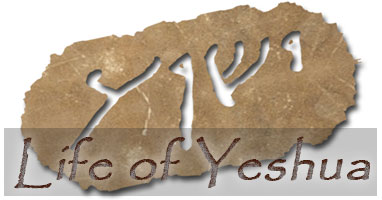 Click here to return to The Life of Yeshua: A Suggested Reconstruction main page.
_______________________________________________________
Click here to return to The Life of Yeshua: A Suggested Reconstruction main page.
_______________________________________________________
- [1] On the challenge Roman imperialism created for first-century Judaism, see Daniel R. Schwartz, “On the Jewish Background of Christianity,” in his Studies in the Jewish Background of Christianity (Tübingen: Mohr [Siebeck], 1992), 1-26, esp. 9-14. ↩
- [2] For a schematic overview of the politico-religious responses to Roman imperialism in first-century Israel, see Joshua N. Tilton, “Locating Jesus’ Place on the Political-Ideological Spectrum of Second Temple Jewish Society,” at WholeStones.org. ↩
- [3] For an introduction to the Essene worldview, see David Flusser, The Spiritual History of the Dead Sea Sect (trans. Carol Glucker; Tel Aviv: MOD Books, 1989). ↩
- [4] On the militant nationalist groups known as the Sicarii and the Zealots, see Menahem Stern, “Zealots,” Encyclopaedia Judaica Year Book 1973 (Jerusalem: Keter, 1973), 135-152; idem, “Sicarii and Zealots,” in The World History of the Jewish People; First Series: Ancient Times; Volume Eight: Society and Religion in the Second Temple Period (ed. Michael Avi-Yonah and Zvi Baras; Jerusalem: Masada Publishing; London: W. H. Allen, 1977), 263-301, 374-377. ↩
- [5] On the two “schools” or “houses” of the Pharisees, see Shmuel Safrai, “Halacha,” in The Literature of the Sages (CRINT II.3; 2 vols.; ed. Shmuel Safrai; Philadelphia: Fortress, 1987), 1:121-209, esp. 185-194. ↩
- [6] On the political aspect of Jesus’ Kingdom of Heaven message, see LOY Excursus: The Kingdom of Heaven in the Life of Yeshua, under the subheading “The Kingdom of Heaven in the Teachings of Jesus: Political Aspect.” ↩
- [7] On the politico-religious significance of exorcisms in first-century Jewish society, see Richard A. Horsley, “‘My Name Is Legion’: Spirit Possession and Exorcism in Roman Palestine,” in Experientia, Volume 1; Inquiry into Religious Experience in Early Judaism and Christianity (ed. Frances Flannery, Colleen Shantz, and Rodney A. Werline; Leiden: Brill, 2008), 41-57. On the interlocking relationship on the personal, political and cosmic planes of demon possession, Roman imperialism and a war between the God of Israel and Satan, see Joshua N. Tilton, “‘Build That Wall!’: The Morals of Wall Building in the Light of Jesus’ Gospel,” under the subheading “How Was the Kingdom of Heaven Proclaimed?” at WholeStones.org. On the ancient Jewish apocalyptic view that Satan was the spiritual power that fueled the Roman Empire, see Joshua N. Tilton, “Like Lightning from Heaven (Luke 10:18): Jesus’ Apocalyptic Vision of the Fall of Satan.” ↩
- [8] On Jesus’ assertion of the divine image in the face of Roman brutality, see Joshua N. Tilton, “A Mile on the Road of Peace,” at WholeStones.org. ↩
- [9] Notley similarly traced a transition from an early optimism to a later pessimism in Jesus’ outlook. See R. Steven Notley, “Luke 5:35: ‘When the Bridegroom Is Taken Away’—Anticipation of the Destruction of the Second Temple,” in The Gospels in First Century Judaea (ed. R. Steven Notley and Jeffrey Paul García; Leiden: Brill, 2016), 107-121, esp. 115. On Jesus’ later pessimism, see David Flusser, “The Times of the Gentiles and the Redemption of Jerusalem,” under the subheading “Solidarity with Israel.” ↩

